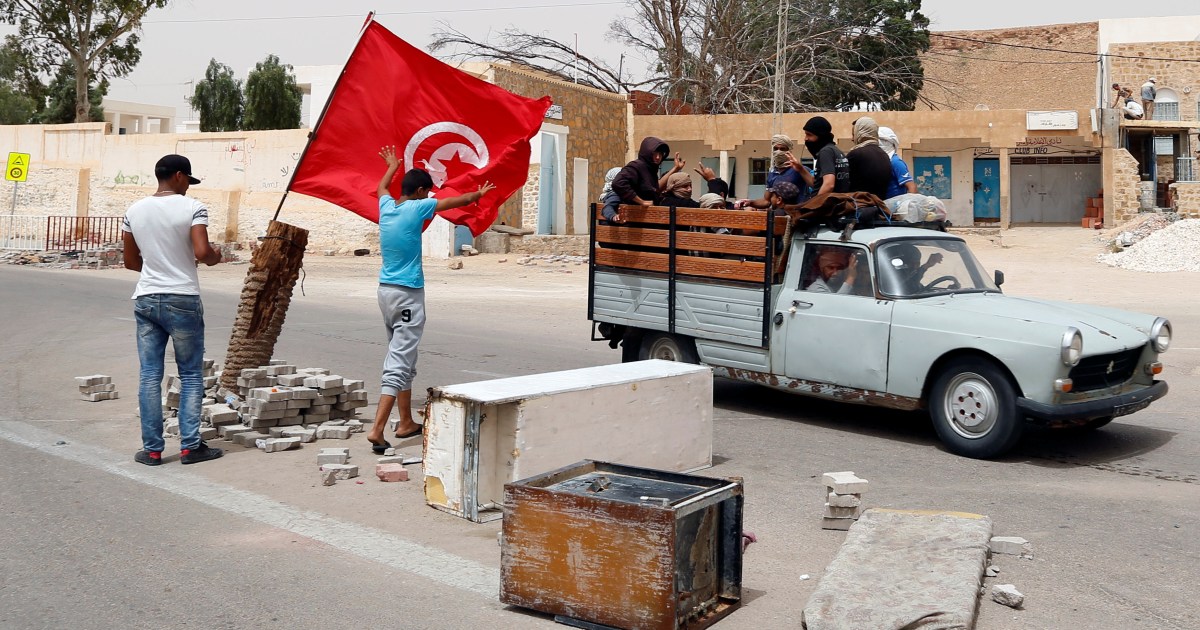Public sector institutions in the Tataouine Governorate, southeast of Tunisia, entered a general strike on Friday, while protesters were awaiting a negotiating meeting with government envoys with the aim of resolving the crisis.
The strike included all government institutions in the region - with the exception of some educational institutions and hospitals - and a number of private institutions.
The move, which the Tunisian General Labor Union (the largest trade union organization in the country) and the coordination of the "Camor Sit" (an oil region in the governorate), came in protest against decisions announced by the government to improve the economic and social conditions in the region, but it did not satisfy the protesters.
The protesters described these decisions as insufficient, and demanded the completion of the implementation of a previous agreement with the government reached in 2017, which included decisions to employ thousands of young people in oil companies and government companies.
The suspension of oil production,
said a member of the local office of the Labor Union in Tataouine Salem Bonhas, that "it is expected today to stop work at energy facilities deployed in the desert and to suspend production there."
In a statement to Anadolu Agency, Bonhas said that the government was responsible for the strike after it denied the rights of the youth of the province and did not fully implement the Camor Agreement.
In June 2017, the government and representatives of protesters in the "Kamour" area in Tataouine entered into an agreement to break a sit-in that lasted for more than two months, in exchange for responding to the protesters' demands to provide job opportunities and develop the governorate.
Last Tuesday, the government approved a number of procedures for Tataouine Governorate, including the assignment of 500 people in a number of sectors until the end of this year, which was rejected in Tataouine.
The protesters are demanding the completion of the assignment of 1500 people to the petroleum companies, the employment of 500 others in the Environmental and Horticultural Company (specialized in landscaping city entrances), and allocating 80 million dinars (32 million dollars) annually in the development fund within the governorate.
The Tataouine region is a quarter of the country’s area, and it contains oil fields that produce 40% of Tunisia’s total oil and gas production.

